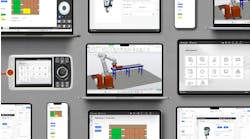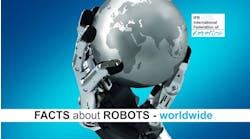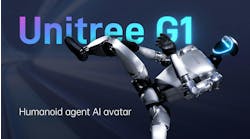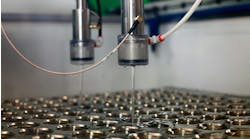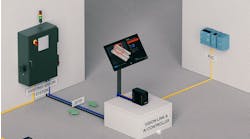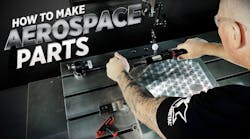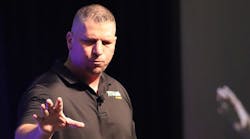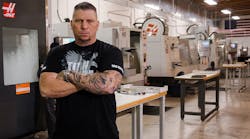If you ask Titan Gilroy, the future of manufacturing doesn’t necessarily hinge on what we consider futuristic technology, such as quantum computing, androids or flying cars. The determining factor for success or failure, the CEO of TITANS of CNC often preaches, comes down to manufacturing education, to teaching the next generation of skilled workers to realize their full potential; that they, like the tech they use, can always get better.
The intricate chess pieces or flowing lion's mane Gilroy can program a CNC machine to create (which you can check out in the attached gallery), speak volumes of what potential can be achieved with the current advanced technology. It should go without saying, though, that if someone wants to recreate one of his masterpieces, it all comes down to how that user was trained. After all, even a Stradivarius in unskilled hands will sound like the wails of a forlorn feline. Likewise, a novice with a simply stunning CAD file and the newest, most expensive CNC machine might turn a block of precious Inconel into a mangled hunk of scrap.
So as excited as Gilroy is about powerful 5-axis vertical machine centers and fancy exotic metals, and about making aerospace parts for Boeing and SpaceX, where he is truly invested is teaching others to do as he does, to be as aggressive and cunning as he is in trying to achieve the best speeds, the highest productivity, the lowest amount of waste. Through this, America's manufacturers become stronger, while those without a path, or maybe going down the wrong, can find a career that pays well and allows them to achieve their full potential.
"I take this as the biggest opportunity that has ever come into my life," Gilroy says of training others.
This includes working closely with any school to get affordable equipment, working with prisons to upgrade their machining programs to decrease recidivism, and recently, helping students on the autism spectrum enter manufacturing.
He teaches at the Rocklin, Calif., facility, on the reality show he hosts (also named TITANS of CNC) and through incredibly popular YouTube videos his video production crew puts out., and most notably, the online TITANS of CNC: Academy. The free courses on CAD, CAM, and CNC machining help users learn basic and advanced manufacturing design and production techniques through training modules of increasing difficulty. And they are available to all and after perusing them, look easy enough for even a journalist to follow--at least easier than coding.
"If schools don't step up quickly and adapt to a system similar to mine, they're going to be left in the past," Gilroy says. "And all the companies around that school are going to have problems with a skills gap and have issues with competing."
The courses evolve from basic building blocks to rocket parts to that chess set and the student body has grown to hundreds of thousands, as machine shops worldwide have adopted the curriculum to address the skills gap in their communities by making their current and prospective workers the best at what they do.Of course, one major component of machining, the all-important "trial by fire," can’t be done with a laptop, so involvement of these satellite academies, which call themselves small groups, is perhaps the most critical component to Gilroy's teaching revolution.
"Manufacturing is all about creativity," Gilroy says. "Whatever the fastest way to get it done is, that's what you need to do."
For the former heavyweight boxing prodigy, attacking the metal is natural instinct; for others, that sharpness can be honed gradually. The true innovation here, though it should seem like common sense, is to treat workers with the same value as your brand new DMG Mori machine or Industry 4.0 integration.
"If you try to keep people down and keep them as button pushers, you're going to lose them," Gilroy says.
And no shop can afford to lose skilled labor right now.
Currently, manufacturers say skilled production jobs, take an average of two months to fill, according to a late 2018 report released by Deloitte and the Manufacturing Institute. More than half say productivity suffers as a result. Overall, the skills gap could negatively impact the U.S. economy by as much as $2.5 trillion by 2028. That's something Gilroy, who had to lay off a small army in 2009, never wants to repeat.
"We're losing our jobs to China, losing the ability to put our kids through college, settling for mediocre houses," says Gilroy, a father of five. "China is serious about manufacturing because they learned from us. We built the best country in the world off of our ability to make parts and keep our money here."
This intense drive to train comes from a need to give others the same second chance he was given when he found manufacturing after serving time in prison and wanted a better life for his family. That part of his life is long behind him (read my 2018 profile on Gilroy here), but it's important to understand that Gilroy hasn't ascended to this level of celebrity to spout platitudes; like another Titan, Atlas, he's reached these heights to shoulder a responsibility much greater than himself, and he's now looking for a little help carrying the load.
